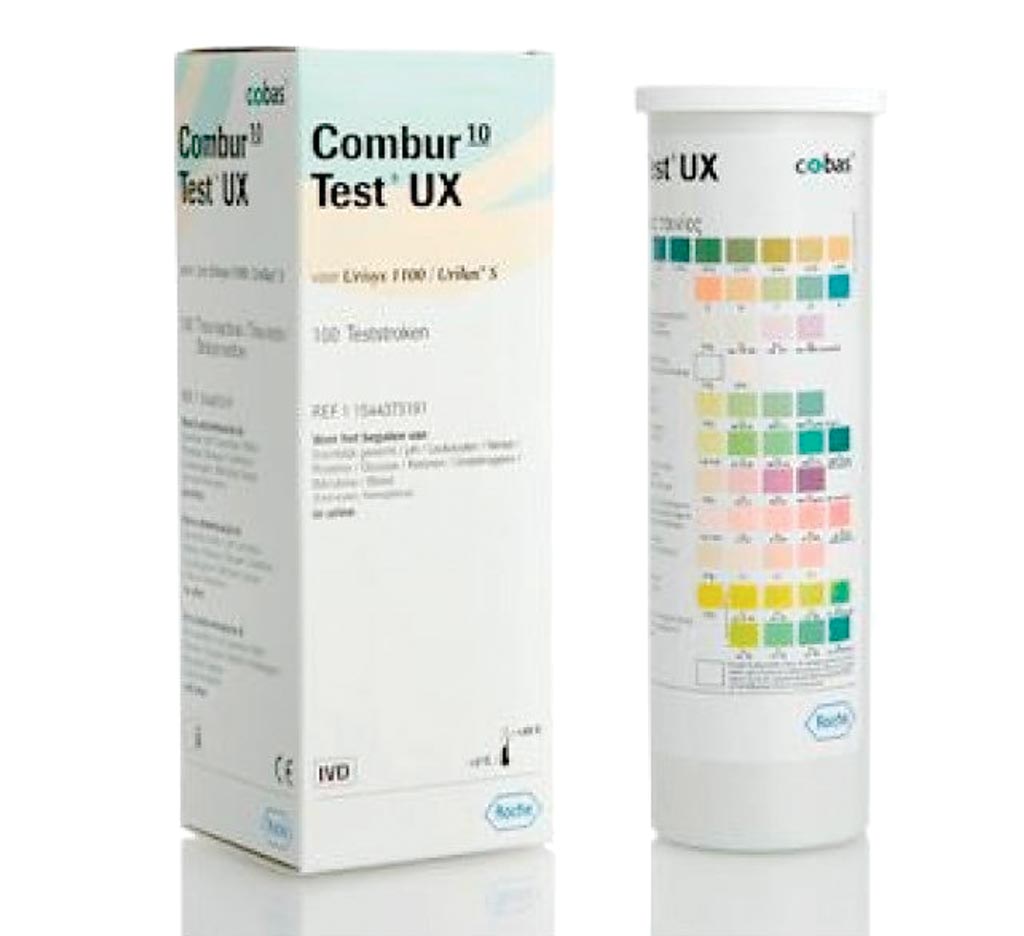Early Serum Creatinine Predicts Post-Surgery AKI
By LabMedica International staff writers
Posted on 05 Apr 2017
Acute Kidney Injury (AKI) is a common and serious complication of cardiac surgery. Mild AKI occurs in nearly one in five patients undergoing cardiac surgery and is associated with a 19-fold increase in short-term mortality.Posted on 05 Apr 2017
It is important to identify patients who are at risk of developing AKI post cardiac surgery as historically and again recently, it has been shown that early nephrology referral for patients who develop AKI results in improved outcomes.

Image: The Combur 10 urinalysis test strips (Photo courtesy of Roche).
Scientists at the Monash Medical Centre and their colleagues prospectively studied 196 consecutive patients undergoing elective (on-pump) cardiac surgery. All patients undergoing on pump cardiac surgery had urinalysis for proteinuria and serum urea and creatinine determined within one month prior to surgery. The study population was predominantly male (73.5%) with the median age of enrolled participants being 70.8 years (range 30–91).
Serum urea and creatinine were subsequently collected immediately upon arrival to intensive care unit (ICU), within two hours of surgery completion, daily for 48 hours, and prior to discharge. Urinalysis was performed using Roche Combur 10 Test Strips and proteinuria was graded according to severity ranging from no detectable protein at 0 to a maximum score of 3 as annotated on the urinalysis kit. Subjects were classified as having proteinuria if the test strip score was 1 or higher.
The scientists reported that the mean pre-operative creatinine was 86 μmmol/L (range 40–246; SD 27.0) with a mean eGFR of 75.63 mL/min/1.73 m2 (range 21.59–118.8 ± 18.75) and 19% of the cohort had diabetes and 40 (20.4%) patients developed AKI postoperatively. Hypertension (OR 2.64), diabetes (OR 2.25), proteinuria (OR 2.48), and a lower baseline eGFR (OR 0.74) were associated with AKI in univariate analysis. A fall of greater than 15% from baseline in the early post-operative serum creatinine was protective for the development of AKI (OR = 0.34). On its own, the change in early post-operative serum creatinine was poorly predictive for AKI.
The authors concluded that a rise of greater than 15% in serum creatinine (sCr) over baseline, taken within two hours of arrival to ICU, equated to an odds ratio of seven for the development of AKI. This is important as sCr is an inexpensive, readily available test and measurements of early sCr could easily be incorporated into clinical practice, even in resource poor settings. They suggest that patients who demonstrate an increase in early sCr should be referred to a nephrologist in a timely manner. This would enable early interventions and potentially improve outcomes. The study was published on March 16, 2017, in the journal BMC Nephrology.













